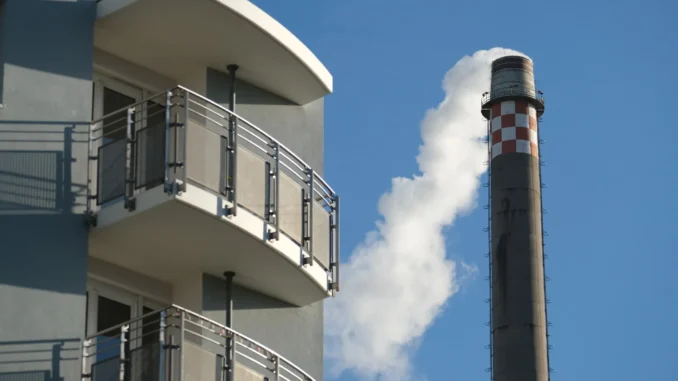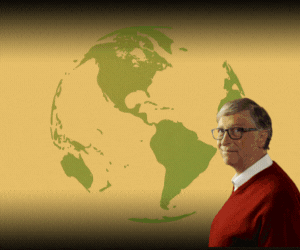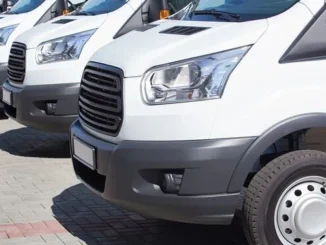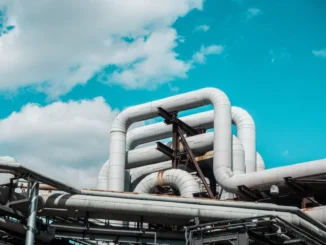
In a significant move ahead of the COP30 Climate Conference, several major nations have come together to endorse a declaration promoting a cleaner future for natural gas. Signed in Belém, Brazil—the host city for COP30—the agreement focuses on establishing a global marketplace for natural gas certified with near-zero methane emissions. This initiative underscores a pragmatic approach to energy security and environmental goals, aiming to balance the role of fossil fuels in the transition to net-zero while addressing one of the most potent greenhouse gases.
The declaration, signed on November 7, 2025, brings together the United Kingdom, Japan, Germany, France, Canada, Kazakhstan, and Norway as key signatories. It also garners support from influential bodies such as the European Commission, the International Energy Agency (IEA), and the Latin American Energy Organization (OLADE). This collaborative effort highlights the growing recognition that natural gas can play a transitional role in global energy systems if its environmental footprint is minimized, particularly through curbing methane leaks during production, processing, and transportation.
Key Components of the Declaration
The declaration outlines several core commitments designed to foster transparency, innovation, and market incentives for low-emission natural gas.
Here’s a breakdown of its main elements:
Development of a Certified Global Marketplace: Signatories pledge to create and promote a worldwide market for natural gas verified to have “near-zero-intensity” methane emissions. This involves third-party certification to ensure supplies meet stringent standards, potentially allowing buyers to pay premiums for cleaner gas. Progress on this marketplace will be announced and reported annually starting next year.
Robust Monitoring and Verification Systems: Countries agree to implement advanced systems for measuring, monitoring, reporting, and verifying (MMRV) methane emissions. These will be grounded in the best available science and cost-effective technologies, with data made publicly transparent where feasible. This step aims to build trust and accountability across the supply chain.
Promotion of Diversified and Low-Emission Supplies: The agreement encourages diversification in natural gas sourcing, prioritizing options that demonstrate reduced emissions during extraction and transport. It positions this as a way to support energy security while aligning with global climate targets, such as limiting warming to 1.5°C above pre-industrial levels.
Collaboration Between Importers and Exporters: Emphasizing partnerships, the declaration calls for joint efforts to drive down emissions globally. This includes regulatory alignment, like the EU’s limits on methane intensity for imports, and incentives for oil and gas companies to invest in methane capture technologies.
Methane, which accounts for about one-third of current global warming and is over 80 times more potent than CO2 in its first 20 years in the atmosphere, has been a focal point in recent climate discussions. By targeting emissions from natural gas operations—such as leaks from pipelines or venting at wells—this declaration could deliver rapid climate benefits, potentially more immediate than CO2 reductions alone.
UK Secretary of State for Energy Security and Net Zero Ed Miliband described the signing as a “boost” to international collaboration on methane, noting months of preparatory work. Supporters like Jonathan Banks from the Clean Air Task Force view it as a foundational step toward requiring all traded fossil fuels to prove their environmental credentials.
Timing and Context with COP30The timing of the declaration is no coincidence, occurring just days before COP30 kicks off on November 10, 2025, in Belém. As the world gathers for what could be a pivotal summit on accelerating climate action, this agreement aligns with broader efforts to tackle methane from fossil fuels. Previous COPs, such as COP28’s Oil and Gas Decarbonization Charter, laid the groundwork by committing companies to methane reductions, and COP30 is expected to build on these with calls for faster implementation.
Brazil, as host, has emphasized partnerships and practical solutions, including methane cuts from agriculture and energy sectors. The declaration supports these priorities, potentially influencing negotiations on updated Nationally Determined Contributions (NDCs) and global methane pledges.
Is This in Response to Bill Gates’ Recent Climate Statements?
The user query also raises an intriguing question: Could this declaration be a response to Bill Gates’ recent pivot on climate rhetoric, where he downplayed the “doomsday view” and stated that climate change is a “chronic problem, not an existential threat”?
Gates’ memo, published on October 28, 2025, called for a “major strategic pivot” in global climate strategy, arguing against overemphasizing temperature targets like 1.5°C and instead focusing on adaptation, innovation, and aiding vulnerable populations. He emphasized that while climate change is real, it won’t lead to humanity’s demise, and resources should be addressed to immediate threats like poverty and disease.
As covered extensively on EnergyNewsBeat.co, Gates’ statements have sparked debate about the opportunity costs of climate alarmism and its impact on global markets.
One article on the site questions what COP30 can achieve in light of Gates’ admission, suggesting it challenges the “obsessive” focus on dire scenarios pushed by activists.
The platform highlights how Gates’ views could reshape priorities, estimating billions in economic costs from exaggerated fears.
However, there’s no direct evidence linking the declaration to Gates’ memo. Preparations for such international agreements typically span months, predating his October publication. That said, the declaration’s emphasis on practical, market-driven solutions—rather than outright phasing out fossil fuels—aligns with Gates’ call for innovation and realism over panic. It may reflect a broader shift in climate discourse toward manageable risks, where natural gas with controlled emissions serves as a bridge fuel. As COP30 unfolds, watch for how this pragmatic tone influences outcomes.
It also raises questions about Net Zero policies and mechanisms like the Carbon Borders Tax (CBAM) in the UK. Is this just the precursor to try and get funding for the UN? They saw that their Carbon Tax and Net Zero policies have been shuffled off by the Trump adminstration. The USAID funding mechanism has been shut down, and many UN NGOs were taking advantage of that for climate fear-mongering. So, we will be tracking to see how and who this new methodology will work.
This declaration represents a forward-thinking step in energy policy, blending environmental ambition with economic reality. Stay tuned to Energy News Beat for more updates on COP30 and the evolving global energy landscape.







